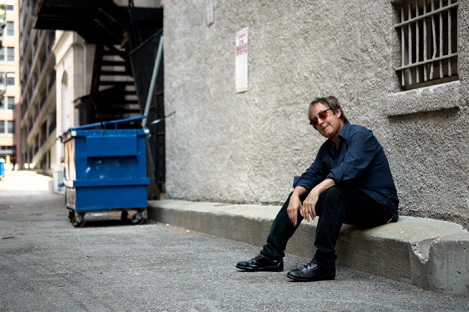
Joe Hanrahan is founder and artistic director of The Midnight Company, which has been celebrating its 25th anniversary in 2022. In his opinion, “There is a severe demarcation between the handful of Equity theatres in town, and all the other theatres (including several that produce high-quality, award-winning work). These theatres, due to the support they receive from St. Louis audiences, along with the significant monies they receive from local and state government and funding organizations, owe the community a more generous approach.”
To Hanrahan’s thinking, for many local companies “a serious challenge to the growth or survival of theatre here is the driving desire many theatres have to preach about social conditions – resulting in numerous dry, dry plays that have the audience nodding in agreement, sometimes tearing up, but leaving the theatre with no commitment to action. And, after that, not a lot of joy.”
As for inspiration, for The Midnight Company, Hanrahan says that “it’s always two things that inspire: (1) a play has to have a fascinating story, something that makes you want to grab people by the lapels and say, “You’ve got to hear this!,” and (2) “Can I pull this off? Will audiences buy this?”
Ellie Schwetye and Rachel Tibbetts, co-producers of SATE, say that “SATE is a collective of artists who tell new and established stories in an unfamiliar way, while essentially promoting the work of women in directing, design, writing, stage management, and the technical arts.
The ‘E’ in SATE stands for ensemble,” they add. “The company prides itself on establishing and maintaining a tight group of artists who can be drawn on to create material. SATE’s annual Aphra Behn Festival has become its signature for supporting emerging women theatre directors, as well as expanding and diversifying its artist collaborators.”
Schwetye and Tibbetts add that “along with the individual artists SATE cultivates relationships with, it’s the partnerships with other arts organizations that really keeps SATE – and all local theatre companies – moving forward.”
As for the challenges in the pandemic era, they note that “the pandemic has highlighted the importance of prioritizing the health and emotional well-being of all the artists that work with SATE. Sometimes the show can’t go on and it’s not necessarily a sign of strength to constantly push that narrative. We have to put people first in all that we do.”
New Line Theatre, which recently celebrated its 30th season as the “Bad Boy of Musical Theatre,” inspires the artists with whom it works by producing “lots of shows that other companies wouldn’t touch,” says its founder and artistic director, Scott Miller. “(These are) fascinating shows that challenge our artists and our audiences; smart, original shows that failed commercially in New York; meaty adult shows about social and political issues that touch all of us. And, from time to time, we also produce world premieres.”
Because of this approach, says Miller, “New Line is well known in the New York theatre community, for the fearlessness of our programming and the consistent artistry of our work. We know that storytelling is a fundamental necessity of human existence, and we know every person on our shows is an important collaborator in making and sharing exciting new pieces of theatre with our community.”
The pandemic dealt New Line a significant blow due to the severe restrictions placed on audience attendance, as it did elsewhere. “Before the pandemic hit,” says Miller, “New Line was in the best financial shape in the company’s history. But now, we’re back to struggling again with the budget. We had to cancel a number of performances last season because of Covid.
“In a lot of ways, we’ve had to start over, after an almost two-year break,” notes Miller. “But we’ve assembled three amazing casts for the coming season, we’ve hired some wonderful new staff, and we’re back to selling season tickets again. By far, the most important thing has been our patrons, sending donations even while we couldn’t produce anything, and sending us the nicest, most encouraging notes. Such excitement from our supporters reminds us that what we do is important. |



